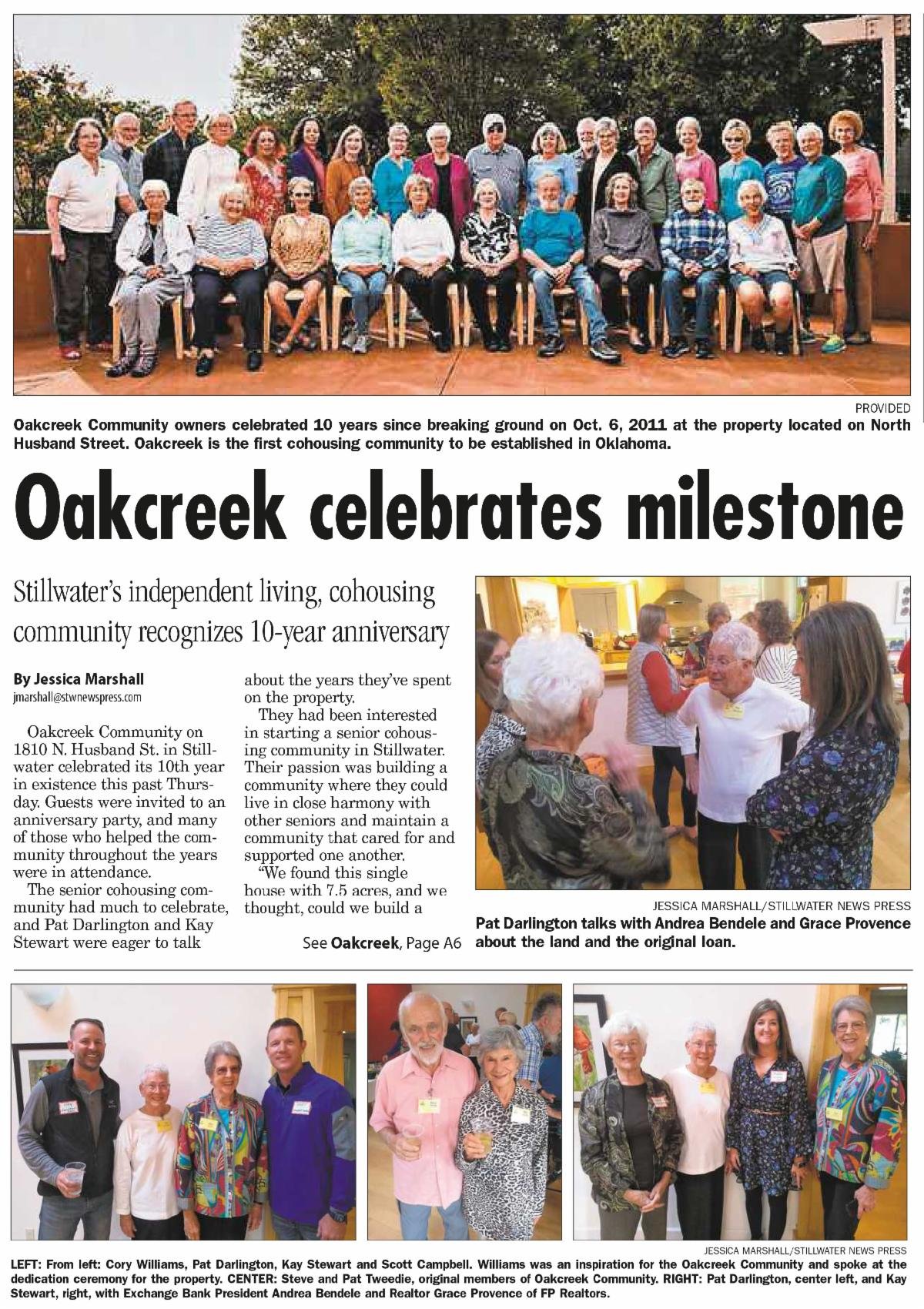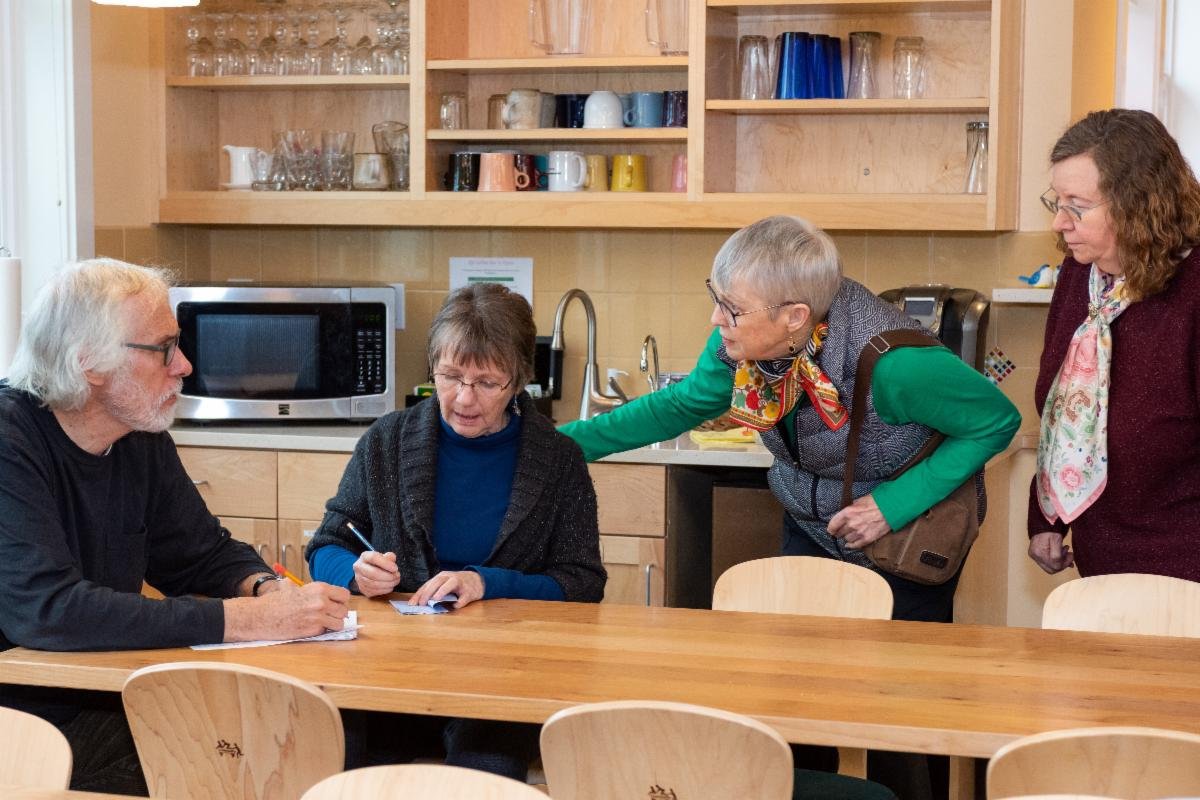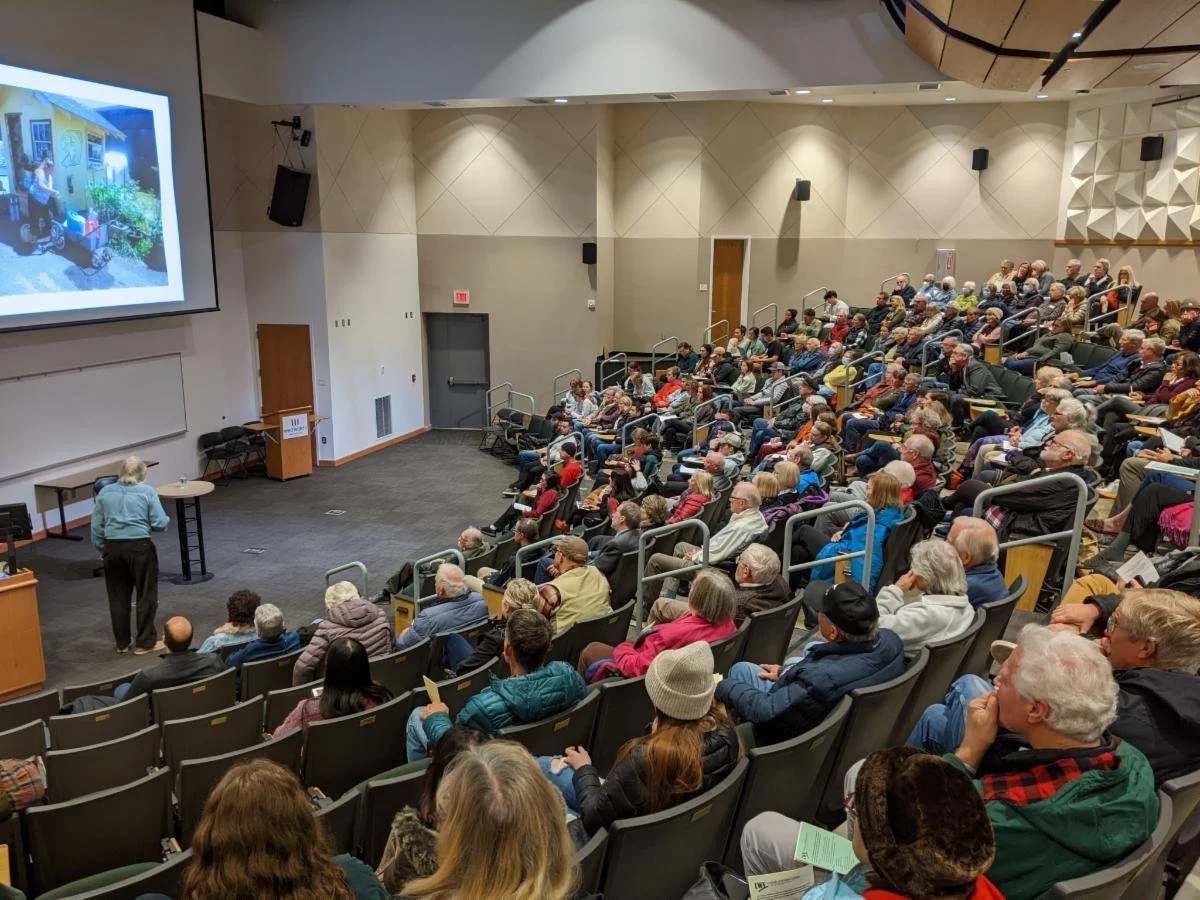Cohousing Community in Stillwater, OK celebrating their 10-year anniversary
Oakcreek Community in Stillwater, Oklahoma just celebrated its 10th year in existence this past Thursday. Guests were invited to an anniversary party, and many of those who helped the community throughout the years were in attendance.
The senior cohousing community had much to celebrate, and Pat Darlington and Kay Stewart were eager to talk about the years they’ve spent on the property.
"Cohousing is everything I believed in all of my life ... interdependence, good neighbors, intentional design fostering community, helping, learning, being challenged to grow ... and these are all true at Oakcreek"
-Pat Darlington
Read the rest of the article HERE













